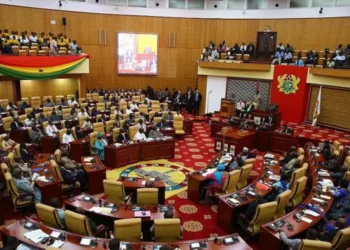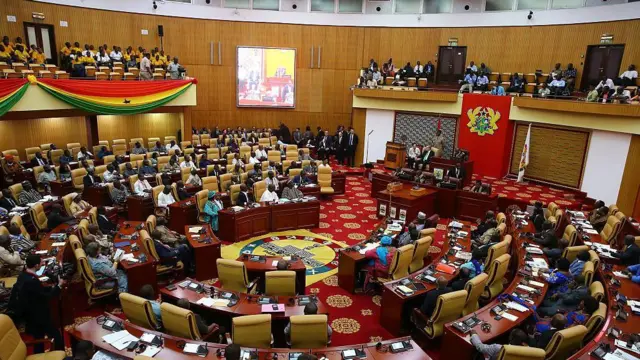Ghana’s growing green enterprise sector is being stifled by weak governance, inconsistent policies, and inadequate funding mechanisms, according to a new report by IMANI Africa.
The report, unveiled by IMANI’s founding president Franklin Cudjoe, highlighted structural issues that are preventing environmentally sustainable businesses from scaling and contributing more meaningfully to the country’s climate goals and job creation agenda.
“The analysis follows findings from the Ghana Statistical Service’s Integrated Business Establishment Survey, which revealed that approximately 20 percent of business establishments in Ghana can be classified as green or environmentally sustainable”
Franklin Cudjoe, Founding President of IMANI Africa
While this figure suggested that green enterprises are taking root in the Ghanaian economy, IMANI’s report posited that current regulatory and market conditions do not support their long-term growth and impact.
The report warned that the absence of legally binding climate obligations has created significant uncertainty for green businesses in Ghana. Without strong legal backing, emission reduction policies remain fragile, undermining institutional coordination and long-term investor confidence.
IMANI noted that while Ghana has developed a number of climate-related strategies and emissions reduction plans, these frameworks are not enforceable by law and therefore do not provide the legal certainty that would typically drive market participation.

“There is a high risk of uncertainty because the policies are inconsistent and incoherent, and institutional coordination is weak because the emissions reduction plans and policies are not backed by law”
Franklin Cudjoe, Founding President of IMANI Africa
Comparative insights from South Africa and Kenya, according to the report, demonstrate how binding obligations on both public and private institutions can create a compelling market for green products and services.
These legal frameworks not only establish clear environmental responsibilities but also generate sustained demand within green value chains.
Aligned Incentives and Fiscal Barriers
Beyond legal ambiguity, the report criticized Ghana’s current fiscal and regulatory environment for failing to encourage green business development. The study identified poorly targeted fiscal incentives, high regulatory burdens, and the dominance of short-term policy thinking as key deterrents to investment in environmentally sustainable ventures.
“Moreover, the current legal and policy regime does not provide sufficient incentives to support green businesses,” the report emphasized. It added that a lack of strategic direction in fiscal planning further compounds the obstacles for companies trying to enter or grow within the green economy.
This regulatory landscape, IMANI argued, stands in stark contrast to the urgent need for Ghana to boost private sector financing for climate-focused industries. The report contends that achieving the country’s climate ambitions hinges on significantly “increasing both domestic and international private capital flows” into green sectors.

Capital Gaps and Market Dysfunction
The report also shed light on the funding bottlenecks plaguing green businesses.
While banks play a crucial role in facilitating private sector expansion, they are reportedly unable to offer sufficient capital due to high default risks and systemic constraints. As a result, green entrepreneurs are forced to seek alternative, often limited, sources of financing, further “delaying growth and scalability.”
“For Ghana to achieve its climate ambitions, domestic and international private sector capital must significantly grow, but banks are unable to provide adequate capital for the private sector, and the risk of default remains high”
Franklin Cudjoe, Founding President of IMANI Africa
These capital gaps, the report asserted, leave green enterprises vulnerable to market fluctuations and uncompetitive within both domestic and international value chains.
Without reliable access to financing, most green businesses are unable to invest in innovation, scale operations, or attract the skilled labour needed to support long-term sustainability.
In its concluding remarks, IMANI called for a structural overhaul of Ghana’s climate governance framework. This includes embedding climate obligations in law, realigning fiscal incentives to favour green enterprises, and strengthening coordination across state agencies.
“IMANI has critically analyzed the governance and market reforms needed to scale green business investments in Ghana and identified politically feasible pathways for addressing the governance and market constraints to doing green business in Ghana”
Franklin Cudjoe, Founding President of IMANI Africa
As Ghana positions itself as a key player in the global climate response, IMANI warned that without urgent policy, legal, and financial reforms, the country’s green potential will remain largely untapped.
READ MORE: Trump Tariffs Dealt Heavy Blow





















